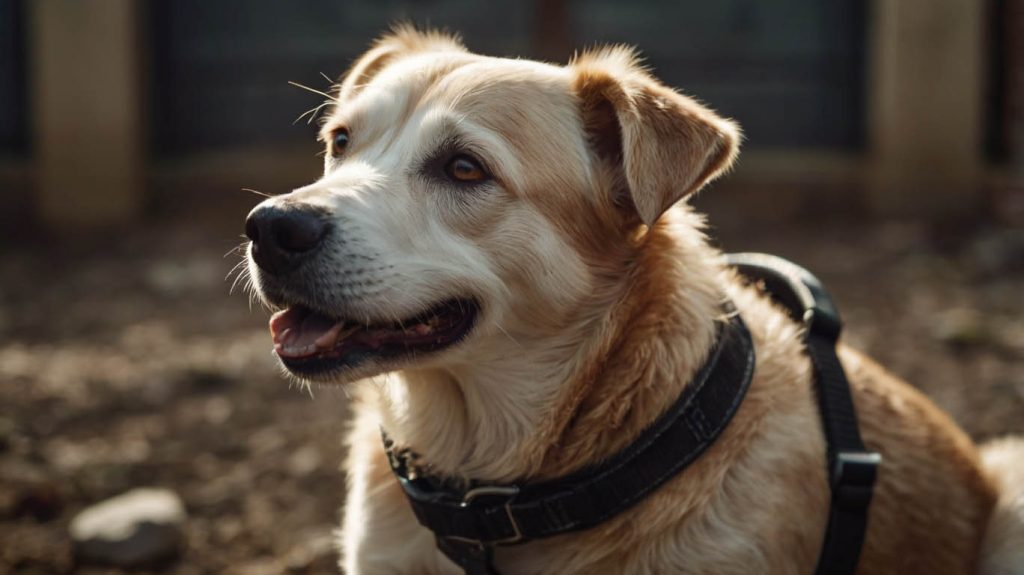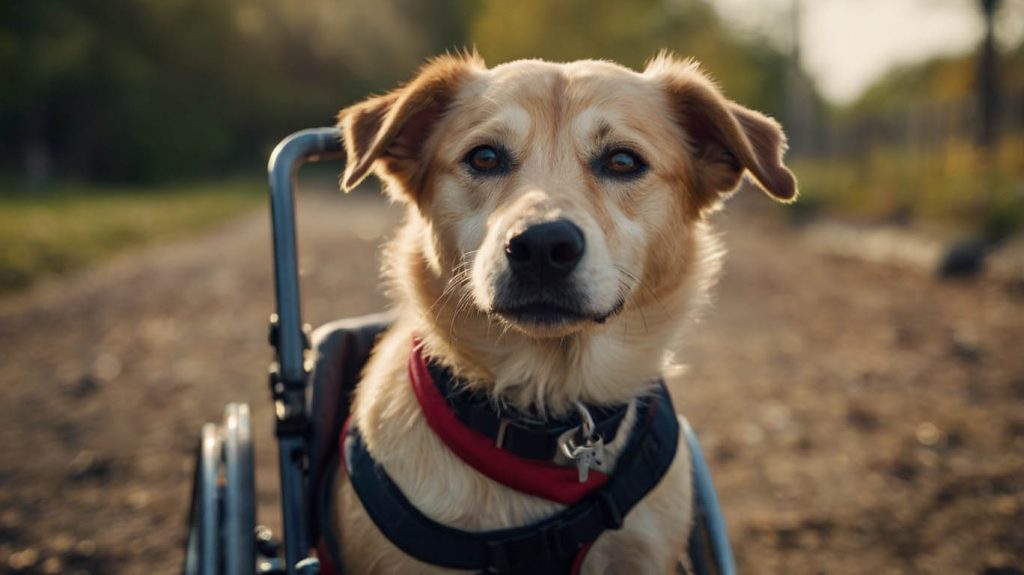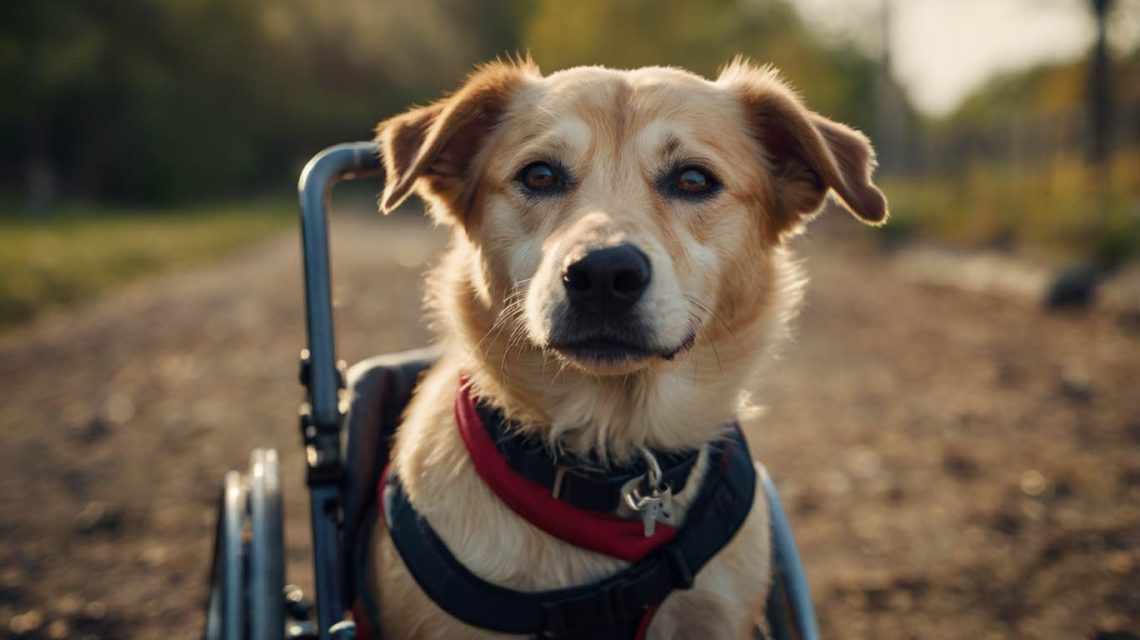Disabled Dogs for Adoption: The Ultimate Guide to Welcoming a Perfectly Imperfect Pup
You scroll through photos from your local animal shelter, your heart open to finding a new best friend. You see countless adorable, able-bodied dogs. Then, a particular photo stops you in your tracks. It’s a dog with one cloudy eye, another in a wheeled cart, or perhaps one with only three legs, yet their tail is a blur of happy motion. A wave of compassion washes over you, but it’s quickly followed by a hint of uncertainty. You feel a pull toward these special souls, but you also feel a little intimidated. Consequently, you begin to explore the incredible world of disabled dogs for adoption.
Many potential adopters might hesitate, worried that caring for a disabled dog will be too difficult, too expensive, or too sad. However, those who have taken the leap will tell you a different story. They’ll speak of a resilience that is awe-inspiring, a bond that is exceptionally deep, and a joy that is magnified by overcoming challenges together. Therefore, this guide is here to demystify the process. We will celebrate the incredible spirit of these dogs, provide a realistic look at their needs, and show you why opening your home to a “perfectly imperfect” pup might just be the most rewarding decision you ever make.
The Unseen Beauty of Disabled Dogs for Adoption
Why should you specifically consider a dog with a disability? The reasons are as profound as they are practical.

You Are Saving a Life That is Often Overlooked
This is the most powerful reason. In a busy shelter environment, disabled dogs for adoption are frequently passed over in favor of their able-bodied kennel mates. They are often at a higher risk of long-term kenneling or even euthanasia. When you choose to adopt a special needs dog, you are not just giving them a home; you are giving them a chance at life itself. You are telling them, “I see you, and you are worthy of love just as you are.”
Their Resilience Will Inspire You Daily
Dogs do not dwell on their limitations. A three-legged dog doesn’t wake up feeling sorry for themselves; they wake up ready to play. A deaf dog doesn’t mourn the sounds they can’t hear; they learn to communicate through sight and touch. Their ability to live fully in the present moment and adapt to their circumstances is a powerful, daily lesson in grace and strength.
You Forge an Extraordinarily Deep Bond
The relationship you build with a disabled dog is often uniquely profound. Because they rely on you for a bit of extra help, a deep level of trust and communication develops. You become a true team, navigating the world together. This partnership creates an unbreakable bond that is cherished by owners of special needs pets.
Types of Disabled Dogs for Adoption and What to Expect
“Disability” is a broad term. Here are some of the common types of special needs dogs you might find and a realistic look at their care.
Adopting a Tripod (Three-Legged) Dog
These are some of the most common and easily adaptable disabled dogs.
- What to Expect: Most tripods adapt with incredible speed. They learn to run, play, and navigate stairs with astonishing agility.
- Care Needs: Their primary need is weight management. Keeping them at a lean, healthy weight is crucial to reduce stress on their remaining joints. They may also benefit from joint supplements.
Adopting a Blind or Visually Impaired Dog
A blind dog navigates the world with their nose and ears.
- What to Expect: These dogs thrive on routine and predictability. They will quickly memorize the layout of your home.
- Care Needs: Your main job is to create a safe, consistent environment. Don’t move the furniture. Use baby gates to block stairs and other hazards. Use verbal cues and different textures (like rugs) to help them navigate. This is a key aspect of caring for disabled dogs for adoption.
Adopting a Deaf or Hearing-Impaired Dog
A deaf dog “listens” with their eyes.
- What to Expect: Deaf dogs are often surprisingly easy to train because they are not distracted by sounds! They become incredibly attuned to visual cues.
- Care Needs: You will need to learn hand signals for training. A vibrating collar (not a shock collar) can be a great tool to get their attention when they aren’t looking at you. You must also take extra safety precautions on walks, as they cannot hear approaching traffic or other dangers.
Adopting a Dog in a Wheelchair (Paralyzed or Mobility-Impaired)
These “wheelie dogs” often have the biggest and brightest personalities.
- What to Expect: A dog in a well-fitted cart can run and play with incredible freedom and joy.
- Care Needs: This is a more hands-on commitment. You will need to help them in and out of their cart. Depending on the cause of their paralysis, they may also need help with bladder expression (a simple technique that can be easily learned) and require diligent skin care to prevent sores.

Key Questions to Ask Before Adopting Disabled Dogs
Before you bring a special needs dog home, it’s vital to have a clear understanding of their specific situation. Ask the shelter or rescue group:
- What is the exact nature of the disability?
- What is the long-term prognosis? Will the condition be stable, or is it progressive?
- What are the estimated future veterinary costs?
- What is their daily care routine like? (e.g., medications, physical therapy exercises, bladder expression).
- Have they lived in a foster home? A foster parent can provide invaluable insight into the dog’s personality and daily needs.
An honest assessment of your time, finances, and emotional capacity is crucial. This is the most responsible way to approach looking for disabled dogs for adoption.
Finding Disabled Dogs for Adoption: Where to Look
While your local shelter is a great place to start, there are also rescue organizations that specialize in special needs animals.
- Petfinder.com: Use their search filters to look for “special needs” pets in your area.
- Specialized Rescues: Search for rescues dedicated to specific disabilities (e.g., “blind dog rescue”) or breeds that are prone to certain conditions.
A Love That Knows No Limits
Choosing to welcome disabled dogs for adoption into your home is an act of pure love. It is a commitment to seeing the whole, perfect dog beyond their physical limitations. The challenges are real, but the rewards—the unwavering trust, the inspiring resilience, the quiet gratitude in their eyes—are immeasurable. You don’t just change their life; they will undoubtedly change yours for the better.
Have you ever adopted a special needs pet? Share your story in the comments below and inspire someone else to take a chance on a perfectly imperfect friend.


